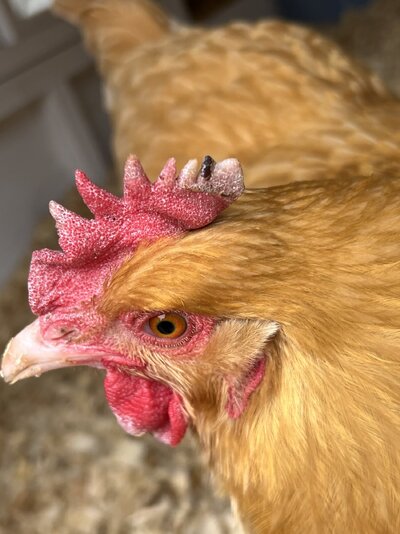twobuckchuckfarm
Chirping
- May 26, 2022
- 40
- 112
- 79
Stella, my favorite hen is showing signs of frostbite after the recent cold snap. Luckily my 6 other hens are fine. This is my first time wintering over chickens, so I have never dealt with anything like this before. I took many precautions, including restricting their access only to the coop, draft prevention around the bottom of the coop (without loss of ventilation). I set up a nipple waterer so their waddles would stay dry. I even hung a small brooder/heater device above their perch for supplemental heat (linked below). To my surprise on the coldest days none of the girls were huddled around the heater. I feel like I did everything I could and clearly it was not enough!
Can any help me understand how this happened, despite keeping them locked inside with supplemental heat and proper ventilation (or so I think)? All the reading I've done on BYC suggests letting the injury take its course and to not treat the frostbite. Can anyone experienced with frostbite tell me if they think she will wind up losing her waddles and comb? I'm trying to prepare myself for the coming weeks of "recovery."
HEATER I USED



Can any help me understand how this happened, despite keeping them locked inside with supplemental heat and proper ventilation (or so I think)? All the reading I've done on BYC suggests letting the injury take its course and to not treat the frostbite. Can anyone experienced with frostbite tell me if they think she will wind up losing her waddles and comb? I'm trying to prepare myself for the coming weeks of "recovery."
HEATER I USED
Last edited:




